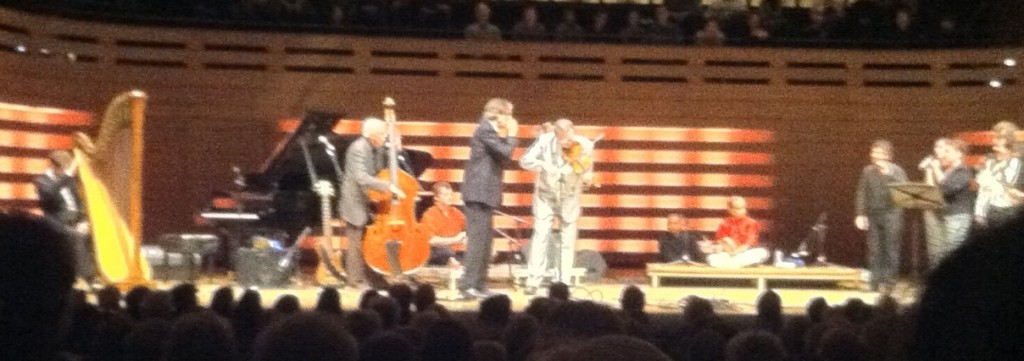
The Royal Conservatory of Music chose to open its fourth season at Koerner Hall on Monday night with a big musical bash in honour of its most famous alumnus, Glenn Gould, and one of the great composers in Western history, Johann Sebastian Bach.
- Classical Music 101: What Does A Conductor Do? - June 17, 2019
- Classical Music 101 | What Does Period Instrument Mean? - May 6, 2019
- CLASSICAL MUSIC 101 | What Does It Mean To Be In Tune? - April 23, 2019
But the birthday BACHanalia was no ordinary classical concert. This was the 21st century, electronically enhanced, digitally remastered, mashup, crossover version, masterminded by Telus Centre programmer Mervon Mehta.
The three-hour concert, including intermission, was about building bridges, finding echoes and linking disparate cultures and styles with the common thread of musical genius.
In many ways, this sort of ambitious agenda is daunting because of its sheer complexity, so huge kudos go to Mehta for a show smoothly run and carefully layered.
There were some awe-inspiring performances, notably from French harpist Sylvain Blassel, who came on stage at the start of each half to show how beautifully the Goldberg Variations can be rendered on a different kind of plucked string instrument. Mark O’Conor brought the house down with a violin/fiddle improvisation that used the instrument in every way imaginable, and then some — with humour as well as skill.
The Dave Young Trio, with Robi Botos at the piano, put in a well-turned word for jazz as they played Oscar Peterson’s Salute to Bach. Howard Levy did seemingly impossible things with the modest harmonica as he played a Bach Flute Sonata, and Autorickshaw thrilled with their guest, mdrangam master Trichy Sankaran.
There was also Bach-meets-pop performed by FreePlay Duo and Retrocity and, to end the show, the electronic ghost of Gould himself, playing Bach Inventions and Sinfonias on a Yamaha grand piano, via the ultra-sophisticated digital playback technology developed by Zenph Studios.
The evening should have felt like the musical equivalent of an old-fashioned roast, where different guests get up to raise a toast and share an anecdote from the very different aspects of the guest of honour’s life. But I couldn’t help getting the impression, despite the enthusiastic audience and praiseworthy performances, there there was a bigger issue at play, hidden behind the artfully lit stage wall: the continued relevance of the traditional Western classical composer and musician in a city of many cultures, tastes and mores.
Monday night’s concert marked the third day in which we couldn’t sit back and just enjoy Gould or Bach in and of themselves anymore, feeling compelled to mix them with other things, to let our imaginations go wild with hybrid artforms.
Is this a way to encourage creativity — or is it a fear of irrelevance?
As we mark the actual date of Glenn Gould’s birth on Tuesday, do we still actually trust the music and the audiences that made him an enduring international sensation?
John Terauds
- Classical Music 101: What Does A Conductor Do? - June 17, 2019
- Classical Music 101 | What Does Period Instrument Mean? - May 6, 2019
- CLASSICAL MUSIC 101 | What Does It Mean To Be In Tune? - April 23, 2019



